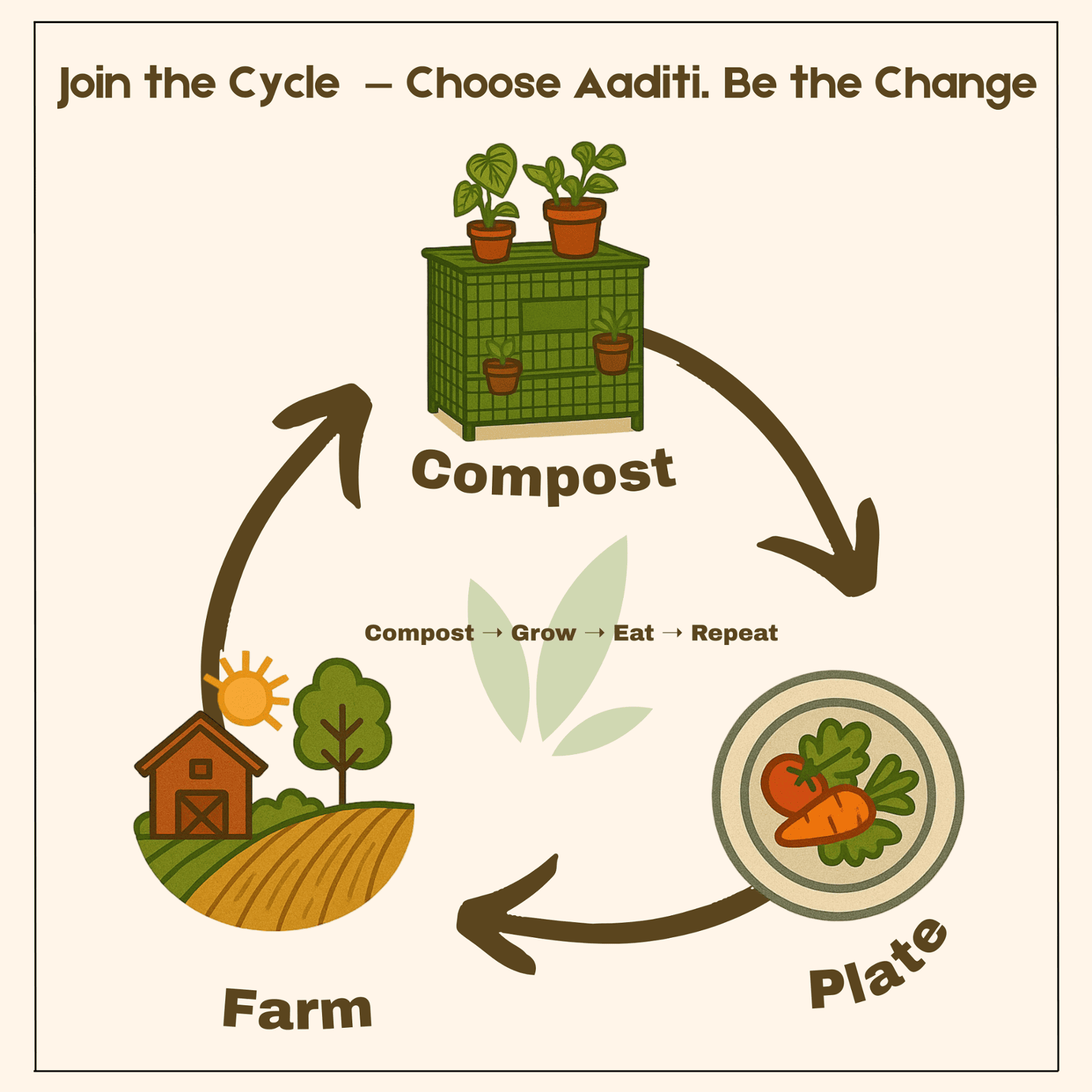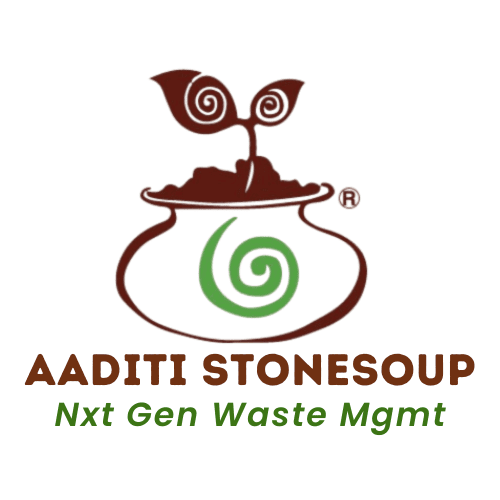Compost to Plate and Back Again: Aaditi’s Role in Building a Circular Economy
🍴 From Waste to Resource: A Circular Vision
In today's world of climate urgency and overflowing landfills, the circular economy is gaining traction as a model for long-term sustainability. It aims to eliminate waste and keep resources in a continuous loop.
One of the most powerful (and local!) ways to participate in the circular economy is through organic waste composting—and that’s where Aaditi by StoneSoup leads the charge.
♻️ Compost → Farm → Plate → Compost: The Sustainable Cycle
This is not just a concept—it’s a closed-loop solution that builds healthier communities and ecosystems:
Compost: Organic kitchen waste is collected and composted in Aaditi’s odor-free, electricity-free bins.
Farm: The resulting compost enriches local soil, enabling chemical-free farming and terrace gardening.
Plate: Residents consume fresh, locally grown food—safeguarding health and reducing food miles.
Compost Again: Kitchen waste from these meals is returned to the bin, restarting the cycle.
This process turns “waste” into a valuable resource, supporting decentralized waste management and resilient local food systems.
🌱 Aaditi Composter: Powering the Loop
Aaditi is a community-friendly organic waste composter designed for simplicity and scalability. It helps societies, schools, businesses, and apartments manage their food waste with ease.
Key Features:
✅ No electricity or turning required
✅ No smell, no leachate
✅ Easy harvesting, ergonomic design
✅ Collapsible and mobile
✅ Works with or without shredded waste
✅ Zero infrastructure needed
Installed across Bangalore and beyond, Aaditi helps urban India take charge of its waste and contribute to climate resilience—one compost bin at a time.
🌾 The Bigger Impact: Composting for Climate & Community
Every Aaditi composter diverts organic waste from landfills—cutting methane emissions and enriching soil health. The farm-to-plate-to-compost model is a simple, cost-effective way to:
Reduce waste transportation costs
Build green jobs and food security
Educate communities about circular practices
Promote eco-conscious living in urban areas
🔁 Why the Circular Economy Needs Composting
Organic waste makes up nearly 60% of household waste in Indian cities. Yet, much of it ends up in landfills, rotting and releasing harmful gases.
By composting this waste locally:
You return nutrients to the soil
You reduce reliance on synthetic fertilizers
You eliminate the need for expensive, centralized waste systems
A circular economy is not complete without composting—it’s the glue that holds the sustainability loop together.
🌟 Join the Movement with Aaditi by StoneSoup
Whether you're a resident welfare association (RWA), a school, a builder, or a sustainability enthusiast, Aaditi helps you put the circular economy into action.
🌿 Ready to transform waste into wealth?
📌 Final Thought
Composting isn’t just about reducing waste. It’s about creating value, growing food, and closing the loop—from compost to farm to plate… and back again.
Start your circular economy journey today. The earth will thank you tomorrow.

